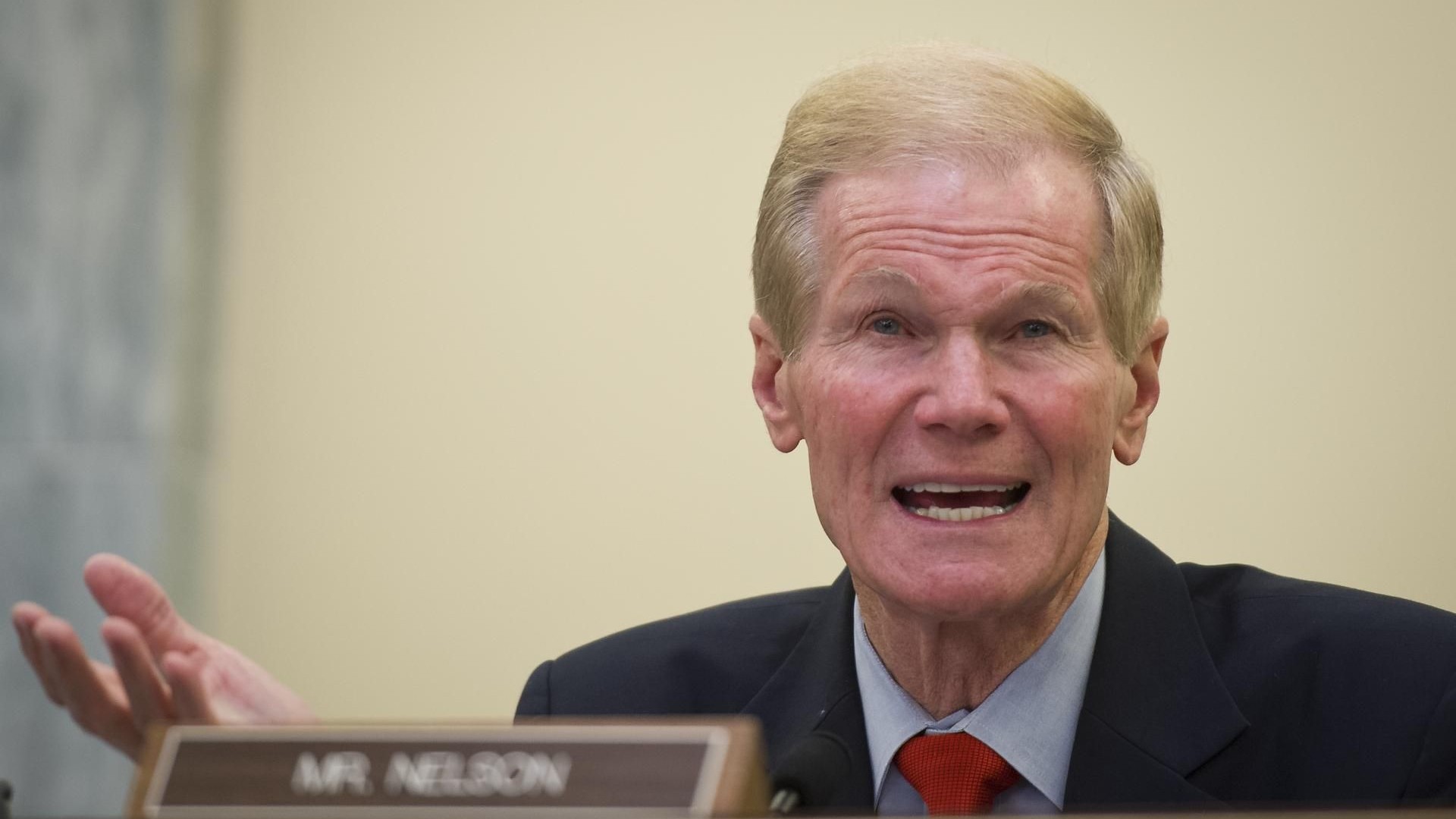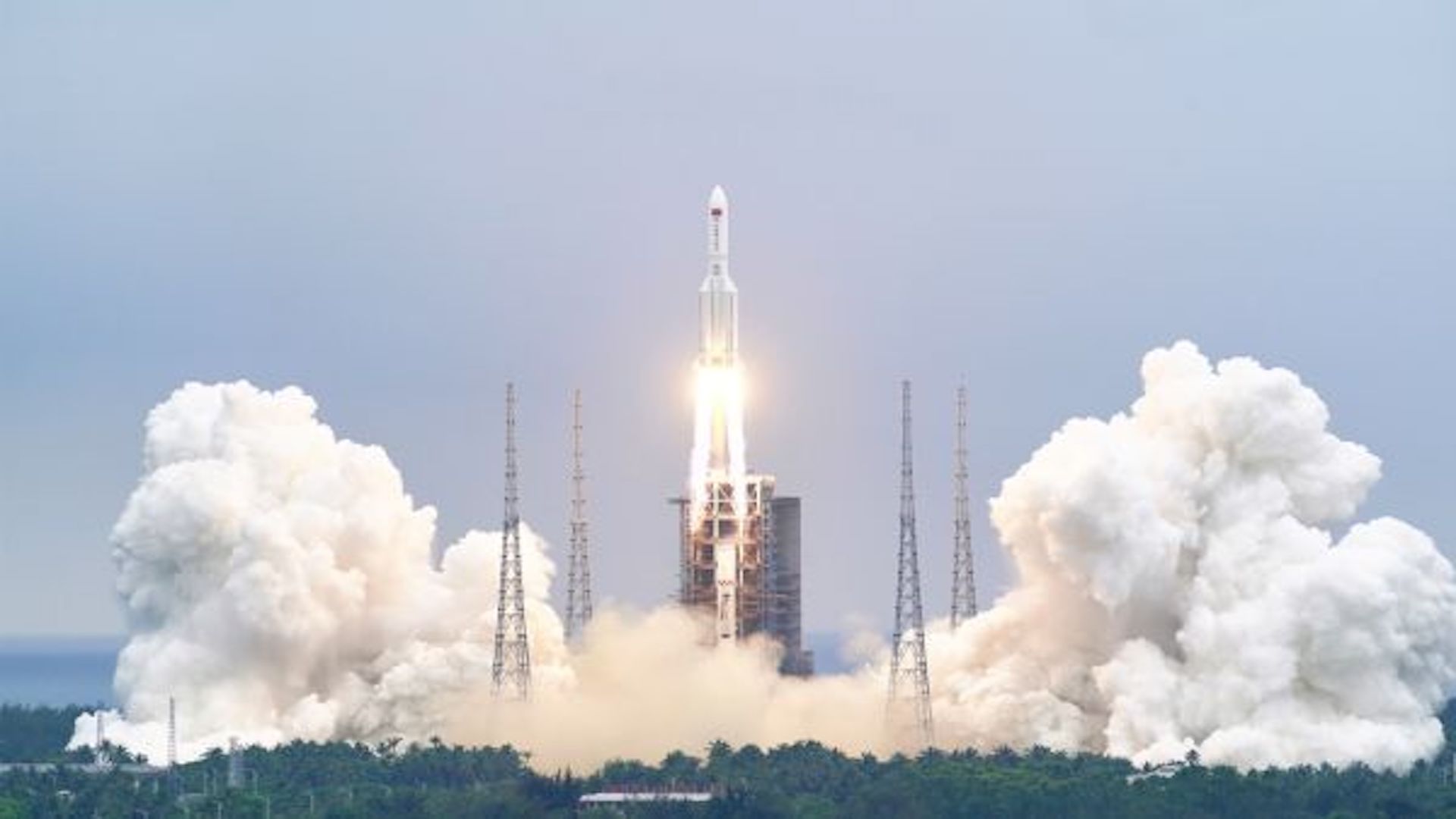China keeps its eye on NASA's budget uncertainty
A cut to NASA's funding could profoundly impact its future.

Breaking space news, the latest updates on rocket launches, skywatching events and more!
You are now subscribed
Your newsletter sign-up was successful
Want to add more newsletters?

Delivered daily
Daily Newsletter
Breaking space news, the latest updates on rocket launches, skywatching events and more!

Once a month
Watch This Space
Sign up to our monthly entertainment newsletter to keep up with all our coverage of the latest sci-fi and space movies, tv shows, games and books.

Once a week
Night Sky This Week
Discover this week's must-see night sky events, moon phases, and stunning astrophotos. Sign up for our skywatching newsletter and explore the universe with us!

Twice a month
Strange New Words
Space.com's Sci-Fi Reader's Club. Read a sci-fi short story every month and join a virtual community of fellow science fiction fans!
China is watching developments surrounding NASA's budget and anticipating how its could affect programs and US leadership in space.
The White House's federal budget request for fiscal year 2024 allocated $27.2 billion to NASA, representing a 7% increase over what it received in 2023. Some of the major objectives outlined in the budget are the Artemis Program that aims to return astronauts to the moon, the Mars Sample Return program, continuing to make new scientific discoveries in the solar system and beyond, maintaining a long-term presence in low-Earth orbit and advancing U.S. leadership in innovation.
But draft bills from the US Congress House and Senate appropriators would give NASA slightly less than its 2023 budget, instead of the requested boost. The ambitious Mars Sample Return program is also in jeopardy after the United States Senate raised questions over its budget.
China's space sector is meanwhile keeping its eye on developments. A recent article in the Chinese Journal of Space Science, authored by researchers at Institute of Science and Technology Strategic Consulting under the Chinese Academy of Sciences (CAS), maps out key issues and possible repercussions.
Related: 'We're in a space race.' NASA chief says US 'better watch out' for China's moon goals
The report states that severe inflation will offset any NASA budget growth, reducing the impact of a potential 7% increase, or compounding cuts, according to machine translation. Furthermore, the report claims Congress is increasingly divided, with a wide gap between Republicans and Democrats in terms of budget spending priorities, and no clear path to compromise.
The article looks at two scenarios for NASA based on two proposals being considered by Republican leadership in the House of Representatives. The first, seeing a reduction of discretionary spending of the U.S. government to the level of fiscal year 2022, would not have a particularly serious impact on NASA in the long term. It would however significantly delay the Artemis 4 mission, and the procurement of a second Artemis lunar lander will be canceled. The Mars Sample Return mission to Mars, the DAVINCI mission to Venus, and the Dragonfly mission to Saturn's moon Titan would also be delayed, with further missions canceled or postponed.
Breaking space news, the latest updates on rocket launches, skywatching events and more!
A second scenario — a cut of 22% compared to 2023 funding levels — could have irreversibly damaging effects on NASA programs, resulting in multiple missions being postponed or canceled.
Artemis 4 would be substantially restruyactured or terminated, including elements of the upgraded Space Launch System (SLS) and Gateway programs. Such budget cuts would also delay or cancel Mars Sample Return, DAVINCI, Dragonfly and others, including several future astrophysics missions, notably the Nancy Roman Space Telescope and the Interstellar Mapping and Acceleration Probe (IMAP).
Other implications include a reduction in the number of cargo missions to the International Space Station (ISS) and delays in the development of both the ISS deorbiting space tug and commercial successor missions to the space station.
The report, which was submitted in May and published in early July this year, notes that although NASA's budget as a proportion of the federal government budget in fiscal year 2024 is still at a historically low level, its absolute value is still more than five times that of the European Space Agency (ESA) and NASA still holds a huge lead in global space funding.
China has its own space station, Tiangong, planned crewed lunar missions and plans for a moon base, and its own Mars sample return project. The country is also facing its own economic challenges, but its space budget and policy processes are very opaque.
Respective progress on these major projects will however have impacts on global space leadership.

Andrew is a freelance space journalist with a focus on reporting on China's rapidly growing space sector. He began writing for Space.com in 2019 and writes for SpaceNews, IEEE Spectrum, National Geographic, Sky & Telescope, New Scientist and others. Andrew first caught the space bug when, as a youngster, he saw Voyager images of other worlds in our solar system for the first time. Away from space, Andrew enjoys trail running in the forests of Finland. You can follow him on Twitter @AJ_FI.

